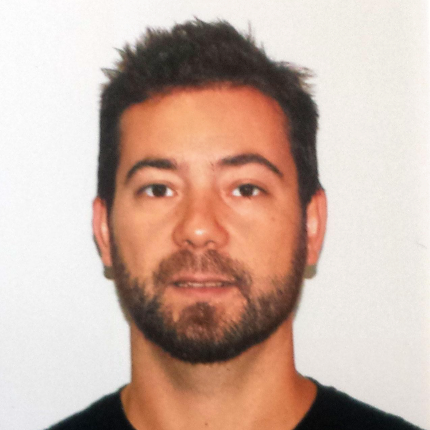 Manuel Ottaviano
Manuel Ottaviano Manuel Ottaviano is a senior research associate of the Universidad Politecnica de Madrid, he works in Life Supporting Technologies research group. He has a PhD in Bioengineering (Universidad Politecnica de Madrid) and he has a M.Sc. Computer Science Engineering (Universitá degli studi di Pavia, Italy). His research topic is the design of persuasive technology to foster healthy habits and build individual skills thought web and mobile technology. He is expert in the design, development and validation of ICT solutions for users with specific chronic conditions, risk of emotional distress or specific psychiatric pathology (bipolar, schizophrenic patients) and other vulnerable population or at health risks. He contributed to several R&D EC funded projects as MyHeart (FP6-507816), NUADU (ITEA), Psyche (FP7-247777), HeartCycle (FP7-216695), MOSAIC(FP7-ICT-2011.5.2-600914), Nevermind (H2020-689691), Pulse (H2020 727816-) and Spanish funded projects (ES3-CIBER-BNN, ITACA-CM S2010/BMD-2374, FIS PI13/02505).
PULSE (Participatory Urban Living for Sustainable Environments) will leverage diverse data sources and big data analytics to transform public health from a reactive to a predictive system, and from a system focused on surveillance to an inclusive and collaborative system supporting health equity. Working within five global cities, PULSE will harvest open city data, and data from health systems, urban and remote sensors, personal devices and social media to enable evidence-driven and timely management of public health events and processes. The clinical focus of the project will be respiratory diseases (asthma) and metabolic diseases (Type 2 Diabetes) in adult populations. The project will develop risk stratification models based on modifiable and non-modifiable risk factors in each urban location, taking account of biological, behavioural, social and environmental risk factors. Following the recommendations of WHO Europe (2015), the project will also focus on the development of metrics, and data-driven approaches, to community resilience and well-being in cities. Deploying a Health in All Policies (HiAP) perspective, and a ‘whole-of-city’ model, the project will integrate and analyze data from the health, environment, planning and transport sectors in each city. PULSE will pioneer the development and testing of dynamic spatio-temporal health impact assessments using geolocated population-based data. PULSE will also develop simulation models of potential policy scenarios to allow decision-makers, citizens and businesses to ascertain the impact of proposed policies. The project will culminate in the establishment of Public Health Observatories in each urban location. These observatories will serve as linked hubs that utilize knowledge-driven processes and big data to shape intersectoral public policy and service provision, support citizen health, and encourage entrepreneurship in the fields of data science and mobile health.